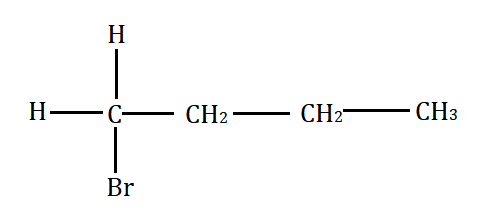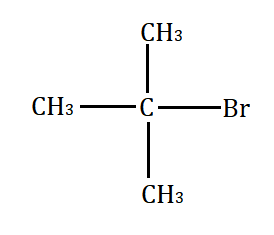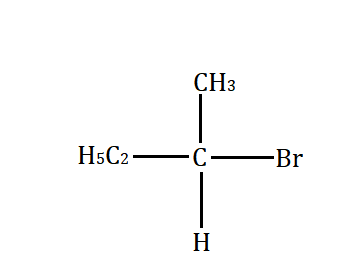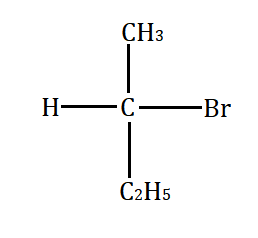Question
Question: Which will undergo the fastest \( {S_N}2 \) substitution reaction when treated with \( NaOH \) ? ...
Which will undergo the fastest SN2 substitution reaction when treated with NaOH ?
(A) 
(B) 
(C) 
(D) 
Solution
Hint : The SN2 reaction is a nucleophilic substitution reaction where a bond is broken and another is formed synchronously. Two reacting species are involved in the rate determining step of the reaction. The term ' SN2 ' stands for – Substitution Nucleophilic Bimolecular.
Complete Step By Step Answer:
The rate of reaction for SN2 follows the following sequence if we take alkyl halides as substrate:
Primary alkyl halide > secondary alkyl halide > tertiary alkyl halide.
This happens because of the less steric hindrance for the attack by nucleophile to the primary alkyl halide. However, the steric hindrance increases from secondary to tertiary alkyl halide. Secondary alkyl halide prefers either SN1 or SN2 mechanism depending on the strength and solvent polarity. Tertiary alkyl halides prefer substitution through the SN1 mechanism.
Keeping this in mind, the correct option for the above question is A.
Additional Information:
This reaction most often occurs at an aliphatic sp3 carbon centre with an electronegative, stable leaving group attached to it which is frequently a halide atom.
The SN2 reaction type is very common and has other names, e.g., "bimolecular nucleophilic substitution", or, among inorganic chemists, "associative substitution" or "interchange mechanism".
Note :
Contrary to SN2 , in the first step of SN1 mechanism a carbonation is formed which is planer and hence attack of nucleophile (second step) may occur from either side to give a racemic product. However, there is no complete racemization as the nucleophilic species attacks the carbonation even before the departing halides ion has moved sufficiently away from the carbonation. In inorganic chemistry, the SN1 reaction is often known as the dissociative mechanism.
